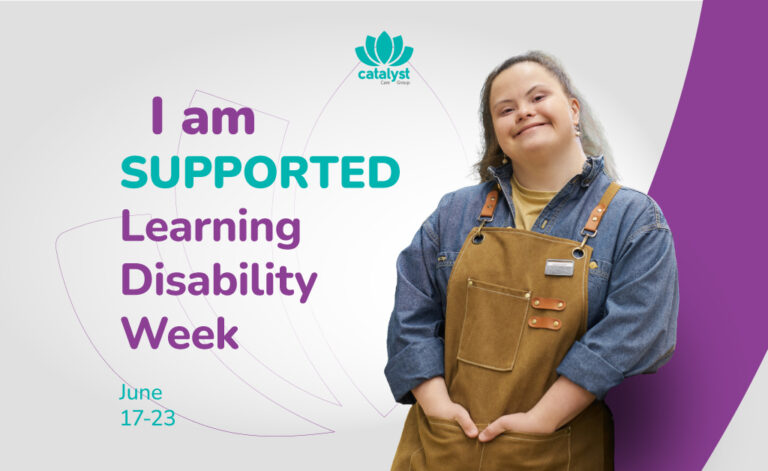Early interventions play a vital role in the overall well-being of people on the autism spectrum. Analysis shows that over 10,000 autistic adults in the UK are not receiving the care and support they need, and many individuals end up in mental health facilities. Frontline experience shows that early intervention for autism can make a major difference in people’s lives.
Significance of Early Detection
Early intervention can significantly improve outcomes for autistic children and adults. When parents receive an autism spectrum evaluation, one of their first steps should include finding early intervention care.
Timely intervention helps children develop skills and handle sensory experiences and behaviours, improving their quality of life now and in the future. Intensive early intervention is likely to have remarkable long-term positive effects on abilities, talents and further growth and development in life.
How Early Can You Diagnose Autism?
Professionals can diagnose autism above the age of two. Some children may show signs of autism, like not responding to their names, limited speech, or not making eye contact. In this case, parents and caregivers should seek professional assessment and advice.
Effective Early Autism Interventions
Early autism intervention begins before or at school age. This period makes the early intervention strategies more effective.
Early support practices will vary from child to child based on their unique needs, skills and aspirations. Children’s early support plans are made and designed carefully and tailored specifically to their needs.
As a house of organisations, Catalyst Care Group provides in-house speech and language therapists and Positive Behaviour Support (PBS) practitioners to provide early autism support to children and young adults.
Our strategies focus on identifying and developing a child’s unique skills, promoting independence as much as possible, and improving the quality of life of children and their families.
Building communication skills, social engagement, and adaptive behaviours through Positive Behaviour Support plans are central to our service provision, creating a supportive environment where children can thrive. The personalised nature of these interventions, addressing each child’s unique strengths and weaknesses, contributes to better outcomes, empowering autistic children to navigate the developmental journey with increased resilience and confidence for a fulfilling future.
Behavioural Approach
The behavioural approach stands as a cornerstone in early autism intervention due to its systematic and structured techniques tailored to the unique needs of individuals on the spectrum. By focusing on observable behaviours and their underlying causes, this approach enables therapists and caregivers to design interventions that promote learning, communication, and social interaction.
ABA Therapy
The key components of ABA include breaking down complex skills into smaller, manageable tasks, providing clear instructions, and using positive reinforcement strategies to encourage desired behaviours. This evidence-based approach is effective in addressing a wide range of behavioural challenges, including communication and social difficulties, often associated with an autism spectrum disorder.
Developmental Approach
The developmental approach to early intervention is an evidence-based, relationship-focused, and family-centred framework committed to fortifying the family and interpersonal interactions that impact a child’s development. This is particularly beneficial for very young children who are still learning about the world around them.
Developmental Systems Approach (DSA) involve guidance for effective support for young children and families, providing insights on implementing early intervention in their own community.
DSA’s approach strives to establish community-based support systems that promote each family’s strengths and nurture children’s development. In essence, the fundamental developmental approach is to design and implement inclusive community-based systems of early intervention for autism spectrum disorder.
Speech and Language Therapy
Speech and language therapy is central to improving a child’s social communication and interaction skills. These strategies can empower children with autism spectrum disorders to become more independent and confident in their environment and the community.
The main goal of speech and language therapy is to develop communication abilities at home and in the community. Speech and language therapists accommodate the approach and strategies based on the unique strengths and characteristics of the child.
Speech and language therapy is focused on:
- Strengthening the mouth, jaw and neck muscles
- Matching emotions with facial expressions
- Grasping social cues and body language
- Answering to questions
- Relating a picture to its meaning
- Balancing voice tone
- Overcoming feeding challenges
- Managing sensory experiences
Speech and language therapy is particularly beneficial for children with autism spectrum disorder using non-verbal communication to express emotions, needs and desires.

Occupational Therapy
Occupational therapy (OT) is an indispensable part of the early intervention support for autism. Working with occupational therapists will help your child develop handwriting, fine motor skills, daily living and working skills. OT strategies are extremely beneficial for managing sensory experiences as well, providing support not only for children but also for their families and caregivers to learn how to create smooth adaptation to different life circumstances.
Occupational therapy plays a unique role in supporting people with autism spectrum disorders in their journey towards independent and rewarding lives.
Occupational therapists work to promote, maintain and build the skills needed to achieve better outcomes at school and work and make a significant difference.
Positive Outcomes of Early Autism Interventions
Early autism interventions can lead to numerous positive outcomes for children on the autism spectrum and their families. Some of these outcomes include:
- Improved Social Skills: Intensive early intervention often focuses on developing social communication skills, such as joint attention, turn-taking, and understanding social cues. These skills can enhance the individual’s ability to interact with peers and form meaningful relationships.
- Enhanced Language Development: Interventions targeting language and communication can help individuals with autism spectrum disorder improve their verbal and nonverbal communication skills. This can lead to increased expressive and receptive language abilities, facilitating better communication with others.
- Reduced risk of behaviours of concern: Early intervention for autism employs behaviour management techniques to address challenging behaviours commonly associated with autism, such as tantrums, aggression, and self-injury. These interventions can help reduce the frequency and intensity of challenging behaviours by teaching alternative coping strategies and reinforcing positive behaviours.
- Education Skills: Early interventions often include activities and strategies to promote cognitive development and academic readiness skills. This may involve teaching pre-academic skills such as letters, numbers, and early literacy concepts, laying the foundation for future academic success.
- Increased Independence: Early intervention for autism that targets daily living skills, such as self-care, hygiene, and household tasks, can help individuals with autism become more independent and self-sufficient. This fosters greater autonomy and improves the quality of life for both the individual and their family.
- Better Family Functioning: Early interventions typically involve parents and caregivers in the treatment process, providing them with education, support, and strategies to effectively support their child’s development. This can lead to reduced stress levels, improved family dynamics, and enhanced coping skills for managing the challenges associated with autism.
- Long-Term Impact on Quality of Life: Research suggests that early intervention for autism can have lasting positive effects on individuals, improving outcomes into adolescence and adulthood. Early intervention lays the groundwork for continued growth and development, setting the stage for a more fulfilling and successful life.
Overall, early autism interventions offer a range of benefits that extend beyond the individual, positively impacting their families, schools, and communities. By addressing the core challenges of each individual’s autism symptoms and promoting skill development during critical developmental periods, these interventions empower individuals with autism to reach their full potential and lead fulfilling lives.
Early Autism Interventions within Catalyst Care Group
Catalyst Care Group provides an extensive team of speech and language therapists as a part of our internal multidisciplinary team. Working as part of a team with parents, teachers, family members and other health professionals, our therapists work closely with individuals to assess areas like motor skills, sensory processing, emotional regulation, and cognitive skills to determine the level of support every child needs.
Our therapists can work with people in the comfort of their homes, providing person-centred and high-quality support. We also provide services in educational and employment settings, everything the individual needs to reach full potential.
Following the assessment, we develop a person-centred program that includes goals and strategies for empowering the people we serve to transform their lives. Goals will depend on the unique skills and abilities of each child and individual, including self-care tasks, fine motor skills needed for writing, engaging in school, and participating in the community.
Our therapists also work with autistic people and their families to develop and practice these skills at home or school to participate in daily living activities.
We provide 24/7 tailored support, ready to act on call and in crisis situations. To see our life-changing impact, check our real-life stories.
Contact us today to find an urgent and consistent support team that is flexible and adaptable to any challenge!










